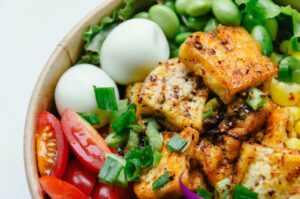Among so many changes resulting from the pandemic, it is not surprising that it has even affected our eating habits. On the one hand, the impact was positive: the consumption of fruits, vegetables and beans rose from 40.2% to 44.6% during the pandemic, according to the first results of the study NutriNet Brazil, from the University of São Paulo, which will monitor 200,000 Brazilians for ten years to identify dietary characteristics that influence the risk of chronic diseases.
“The point is to investigate whether the set of foods that make up dietary patterns is associated with a greater risk or protection from the chronic diseases investigated in the research”, explains Maria Alvim, nutritionist and Master in Public Health from UFJF (Federal University of Juiz de Fora) and PhD student in Public Health at FMUSP (USP Faculty of Medicine).
This data coincides with a trend already verified by IBGE (Brazilian Institute of Geography and Statistics): the percentage of the population that eats fruit and vegetables increased from 16% to 21.4% between 2017 and 2018, according to the latest survey Family Budgets: Consumption Analysis Personal Food in Brazil, published in 2020.
On the other hand, NutriNet Brasil reveals an increase in the consumption of ultra-processed foods in the North and Northeast regions, and also among people with lower education.
“These results suggest social inequalities in the response of eating behavior to the pandemic. This could be explained by the greater difficulty accessing fresh food, in addition to the possible reduction in family income due to job loss, limiting the purchase of higher priced foods, such as fruits and vegetables, meat and fish”, specifies Eurídice Martinez, biologist with a PhD in Nutrition in Public Health from the Faculty of Public Health from USP, postdoctoral researcher at Nupens/USP (Center for Epidemiological Research in Nutrition and Health at the University of São Paulo).
Another study, published in the scientific journal Nutrients, with the participation of Fiocruz and UFRJ (Federal University of Rio de Janeiro), shows that during the pandemic, more teenagers started eating sweets and desserts. The share of young people who said they consume sweets every day increased from 14% to 20.7% in the period.
Guidelines for new policies
These are some of the new data brought by recent studies on our eating habits – that is, the way we eat, covering the types of foods consumed, how they are combined and prepared, in addition to the characteristics of the way we eat.
“Research results are important to guide both health care and decision-making in public policies”, says Kamila Gabe, nutritionist, master and doctoral student in Public Health Nutrition at FSP-USP (Faculty of Public Health at the University of São Paulo) and participant of NutriNet Brasil.
Faced with a scenario of hunger, like the one we are currently experiencing, it is possible to identify groups at greater risk of food insecurity and nutritional. According to the National Survey on Food Insecurity in the Context of the Covid-19 Pandemic in Brazil, by Rede Penssan, from 2020, 55.2% of Brazilian households live with some degree of food insecurity.
With the results in hand, statistical surveys help to inform health professionals when defining dietary guidelines. In the field of public action, this scientific evidence helps to support decisions such as facilitating access to healthy food.
*All experts interviewed for this report are part of the team of researchers at NutriNet Brazil Study.


